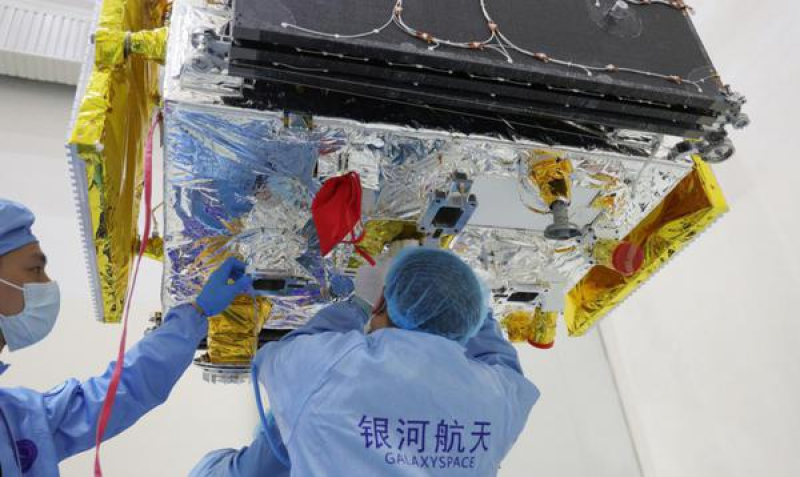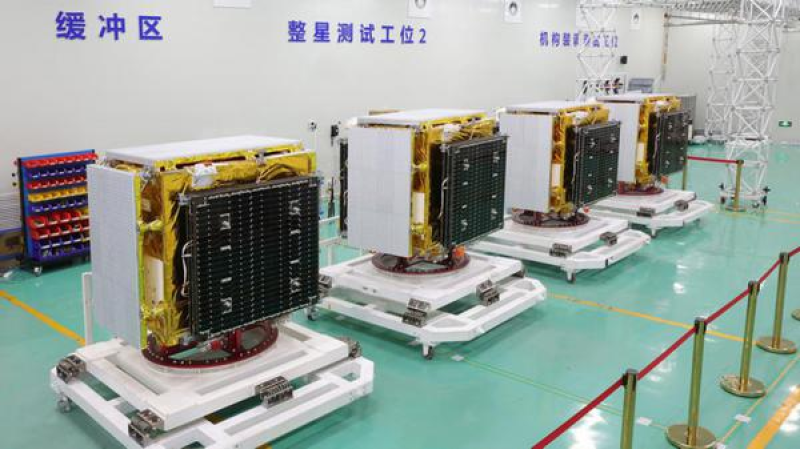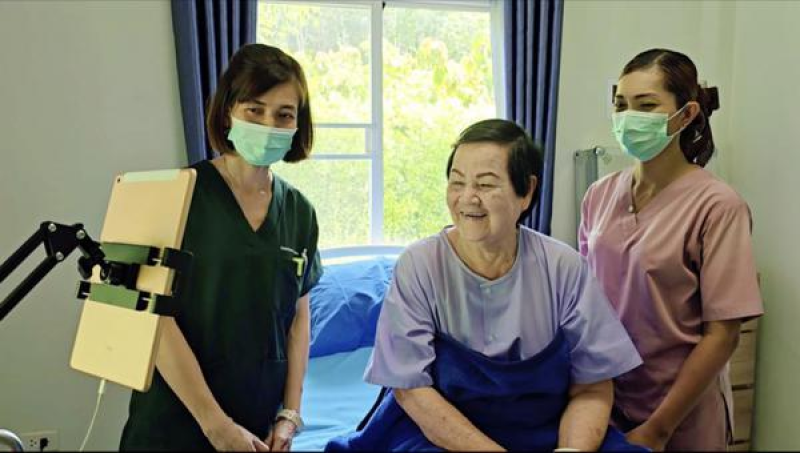GalaxySpace expands global satellite partnerships
GalaxySpace, China's first unicorn company in commercial space and satellite internet, expands global low Earth orbit broadband partnerships and bridges the digital divide with cutting-edge satellite technologies.
Established in April 2018, GalaxySpace is a leading satellite internet solution provider and satellite manufacturer in China. As of May, GalaxySpace has launched 25 independently developed advanced satellites, including the world's first high-frequency low Earth orbit millimeter-wave satellite, China's first batch-produced low Earth orbit broadband communication satellites, China's first flat-panel stackable satellite using flexible solar wings, mass-produced SAR (Synthetic Aperture Radar) satellites, and middle and upper atmospheric limb-sounding remote sensing satellites.

GalaxySpace's technicians work on SAR (Synthetic Aperture Radar) satellite development. [Photo provided to chinadaily.com.cn]GalaxySpace's technicians work on SAR (Synthetic Aperture Radar) satellite development. (Photo provided to chinadaily.com.cn)
The company has established a smart satellite production facility capable of cost-effectively manufacturing about 100 satellites annually, providing solutions for satellite broadband communications, SAR applications, navigation enhancement, spectrum sensing, and optical remote sensing.
Liu Chang, co-founder and vice-president of GalaxySpace, said China's commercial space has already achieved remarkable success.
She stated: "We have seen the growth of several enterprises. The commercial space industry has an extensive supply chain, from upstream rocket manufacturing to downstream satellite applications. As one company grows, it drives the development of related sectors; manufacturing, communications, applications, and even big data will undergo significant changes."

Four mass-produced SAR (Synthetic Aperture Radar) satellites by GalaxySpace. (Photo provided to chinadaily.com.cn]Four mass-produced SAR (Synthetic Aperture Radar) satellites by GalaxySpace. [Photo provided to chinadaily.com.cn)
According to Liu, GalaxySpace's industrial chain partners span the country, growing from just over 100 in 2018 to more than 1,300 in 2025. Its supply chain covers precision machining, mechanical casting, electronic integration, energy, and electromechanical systems and materials, with over half of the partners being small and medium-sized enterprises.
In June 2024, Galaxy Space worked with Mahanakorn University of Technology to establish a ground test station in Thailand and conducted experimental verification of the low Earth orbit broadband satellite internet communication network.
As of 2025, GalaxySpace has established multi-tier partnerships in Thailand, the United Arab Emirates, Saudi Arabia, Indonesia, and Malaysia.

GalaxySpace works with Mahanakorn University of Technology to conduct experimental verification of the low Earth orbit broadband satellite internet communication network. (Photo provided to chinadaily.com.cn)
Liu added that in the future, everyone will be able to connect to satellites for ultra-fast 5G or even 6G communication. People in remote mountain villages, on an island, or in a desert will have access to the inclusive services of satellite internet.
"Thanks to low Earth orbit satellite internet, children in rural areas will benefit from remote education, and elderly residents in remote villages will gain access to telemedical service," Liu added.
According to Measuring Digital Development Facts and Figures 2024, a report from the International Telecommunication Union, approximately one-third of the global population (around 2.6 billion people) still lacked internet access in 2024.